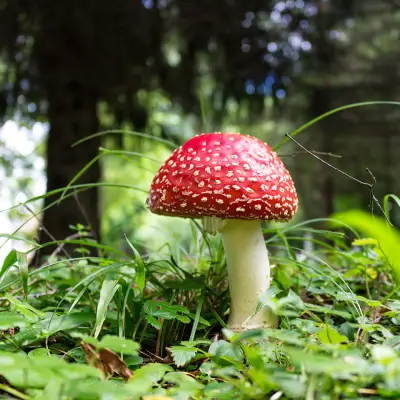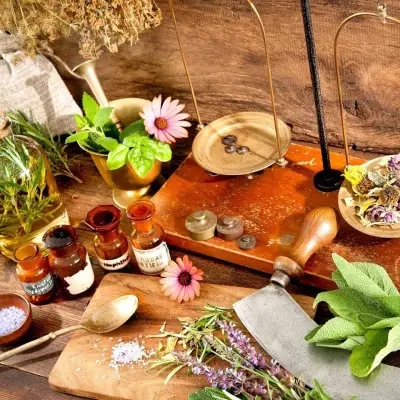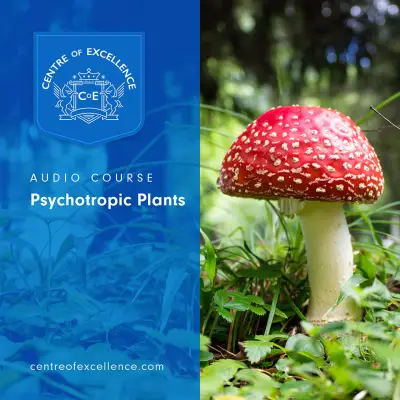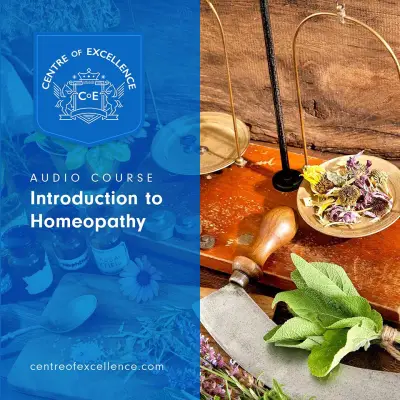Known as nature’s answer to fatigue and stress, Rhodiola is an ancient herb that has been used for centuries. But what exactly does it do, and is it right for you?
Whether you're exploring herbal supplements for energy, mood, or general wellbeing, understanding what Rhodiola extract does can help you make informed choices. Let’s explore Rhodiola rosea and uncover its uses, benefits, and potential side effects.
This article is for informational purposes only and is not a substitute for professional medical advice, diagnosis, or treatment. Always consult with your GP or a qualified healthcare professional before starting any new herbal remedies, especially if you are pregnant, breastfeeding, taking medication, or managing a health condition.
Jump to:
- What is Rhodiola Root?
- The Benefits of Rhodiola Root
- Is Rhodiola Arctic Root?
- What Types of Rhodiola Can You Take?
- How Much Rhodiola Should You Take, and When?
- What Are the Side Effects of Rhodiola?
- Who Should Avoid Rhodiola?
- Is Rhodiola Safe for Long-Term Use?
- Other Common Questions About Rhodiola
- Study Our Herbalism Diploma for £29
Recommended for you!
Best SellersWhat is Rhodiola Root?
Rhodiola root, often referred to as Arctic root or golden root, comes from a hardy plant called Rhodiola rosea. This herb grows in cold, mountainous regions across Europe and Asia. Traditionally, it’s been used in countries like Russia and Scandinavia to help people cope with harsh environments and physical stress.
Rhodiola is classified as an adaptogen, a natural substance believed to help the body adapt to stress. People today use Rhodiola root to support mental clarity, energy levels, and emotional balance.
The Benefits of Rhodiola Root
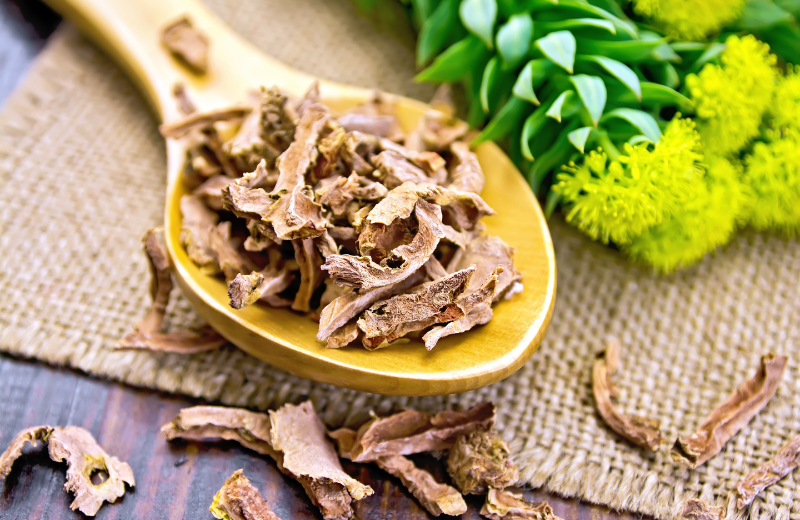
There are numerous reasons why people turn to this herb. Here are some of the top health benefits of Rhodiola:
1. Supports Stress Reduction and Emotional Wellbeing
One of the most well-known reasons people seek out Rhodiola is for its potential to ease stress and promote emotional balance. As an adaptogen, it’s believed to help your body resist physical, chemical, and emotional stressors.
So, how does Rhodiola support stress reduction? It’s thought to work by influencing key stress-mediating chemicals in the brain, such as cortisol, serotonin, and dopamine. By helping to regulate these chemicals, Rhodiola may reduce feelings of overwhelm and promote a sense of calm without causing drowsiness.
Many people specifically use Rhodiola rosea for anxiety, noting that it helps them stay composed during challenging times. A study in the National Institute of Health found that participants with generalised anxiety who took Rhodiola extract experienced significant reductions in stress and anxiety symptoms compared to a control group.
While Rhodiola can offer support, it shouldn’t replace professional treatment for severe anxiety disorders. However, for day-to-day stress and mild anxiety, it may provide a helpful natural boost to your emotional resilience.
2. Boosts Energy and Fights Fatigue
Rhodiola has gained a reputation as a natural remedy to combat tiredness and boost energy levels. It’s believed to enhance the efficiency of how your body produces energy at a cellular level. It may improve mitochondrial function—the powerhouse of your cells, which could explain why many people report feeling more energetic and less fatigued after taking Rhodiola regularly.
A study published in Current Clinical Pharmacology (2009) reviewed several trials and concluded that Rhodiola showed promising results in reducing fatigue and improving mental performance in people experiencing stress-related exhaustion.
Unlike stimulants like caffeine, Rhodiola doesn’t deliver a sharp spike followed by a crash. Instead, it’s thought to provide a more balanced and sustained sense of energy, making it an effective way to maintain stamina throughout the day.
3. Enhances Mental Performance
In times of stress or fatigue, concentration and mental clarity often suffer. Rhodiola has been traditionally used to support cognitive function, particularly in challenging situations.
Research suggests that Rhodiola may enhance mental performance by reducing mental fatigue and improving cognitive functions, such as memory, attention, and problem-solving. It’s believed to achieve this by modulating neurotransmitters involved in brain function and reducing oxidative stress, which can impair cognitive health over time.
A notable study tested Rhodiola’s impact on physical and mental performance in a group of students. The results showed that those who took Rhodiola performed better on tasks requiring concentration and quicker response times.
This has led to growing interest in whether Rhodiola is good for ADHD or other attention-related concerns. While early findings are promising, more targeted research is needed before Rhodiola can be formally recommended for such conditions. However, if you’re looking for a natural way to stay sharp during periods of stress or lack of sleep, Rhodiola may offer valuable support.
4. Physical Performance and Fat Loss
Rhodiola isn’t just popular for its mental health benefits; it’s also widely used by athletes and fitness enthusiasts. Known for its potential to enhance endurance and reduce physical fatigue, Rhodiola has been explored as a natural aid for improving physical performance.
The herb is thought to increase red blood cell count and improve oxygen utilisation, which can lead to better stamina during exercise. This explains why some athletes incorporate Rhodiola rosea supplements into their routines to push through demanding workouts.
Beyond athletic performance, Rhodiola has sparked interest in the areas of weight management and fat loss. While it's not a miracle cure, some believe Rhodiola works by supporting energy levels and reducing stress-induced cravings—two factors that can make a big difference when trying to maintain a healthy weight.
As for fat loss, while there is limited direct evidence linking Rhodiola to fat burning, its ability to enhance energy, reduce stress, and support metabolic function could indirectly assist those aiming to manage their weight, particularly when combined with a healthy diet and regular exercise.
5. Hormonal Balance and Anti-Ageing Potential
Hormonal health is central to overall wellbeing, yet it’s easily disrupted by stress, lifestyle factors, and ageing. Rhodiola has drawn attention for its potential role in balancing hormones, especially through its influence on cortisol, often called the "stress hormone."
Chronic high cortisol levels can lead to weight gain, fatigue, mood swings, and even premature ageing. Research indicates that Rhodiola may help regulate cortisol production, preventing spikes that can negatively impact your body over time.
Its potential doesn’t stop there. Some suggest Rhodiola could have anti-ageing properties due to its antioxidant content, which helps combat oxidative stress—a key contributor to ageing at the cellular level.
However, discussions about how Rhodiola affects hormones also raise questions about its impact on oestrogen and thyroid function. There are anecdotal reports and limited studies suggesting that Rhodiola may influence oestrogen levels. While these effects are not fully understood, anyone with hormone-sensitive conditions should consult a healthcare professional before adding Rhodiola to their routine.
Is Rhodiola Arctic Root?
Rhodiola is commonly known as Arctic root. This nickname comes from the plant’s natural habitat in cold, mountainous regions across Europe and Asia, particularly in Arctic areas where it has been used for centuries. Locals traditionally turned to Arctic root to help withstand physical and mental stress brought on by harsh environments.
What Types of Rhodiola Can You Take?
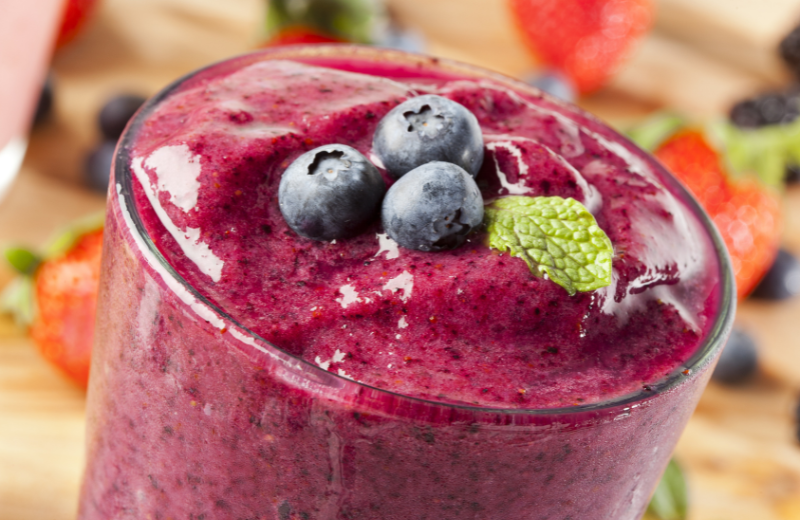
Rhodiola is a versatile herb and is available in several different forms to suit various preferences and lifestyles.
You can choose from capsules, powders, teas, and tinctures—each offering its own advantages. One popular choice is the Rhodiola tincture, a liquid extract known for its fast absorption. Many people appreciate tinctures for their convenience, as they can be easily added to water or taken directly under the tongue.
What is the best form of Rhodiola to take?
- If you prefer simplicity and precise dosing, capsules or tablets might be the best option. They’re easy to carry, tasteless, and ideal for those who want a no-fuss approach.
- If you enjoy herbal rituals, Rhodiola tea could be a soothing way to incorporate the herb into your day, although teas may offer a milder dose.
- For those seeking flexibility and faster absorption, a tincture or liquid extract could be the preferred choice.
- Powders are great if you like adding supplements to smoothies or recipes, giving you control over dosage.
Regardless of the form, it’s essential to choose high-quality Rhodiola rosea supplements from reputable sources. Look for products that specify they contain genuine Rhodiola rosea (not other species), standardised to include active compounds like rosavins and salidroside, which are believed to be responsible for many of the herb’s benefits.
How Much Rhodiola Should You Take, and When?
The typical Rhodiola root dosage ranges from 200mg to 600mg per day, standardised to include key active compounds like rosavins and salidroside. It’s best to start with a lower dose and adjust as needed, following product guidelines.
Since Rhodiola has mild stimulating effects, it's generally recommended to take it in the morning or early afternoon to avoid sleep disturbances. For best results, take it consistently, around 30 minutes before food or a demanding task, and consider short breaks between long-term use to maintain its effectiveness.
What Are the Side Effects of Rhodiola?

Common Rhodiola side effects are usually mild and temporary. Some people report:
- Dizziness or light-headedness
- Dry mouth
- Feeling jittery or restless
- Difficulty sleeping (particularly if taken too late in the day)
- Occasional digestive discomfort
There is some evidence to suggest that Rhodiola may influence hormone levels, which is why people with hormone-sensitive conditions, such as breast cancer, endometriosis, or thyroid disorders, should consult a healthcare professional before using it.
If you're pregnant, breastfeeding, or taking medications for blood pressure, mood disorders, or hormonal health, it's especially important to seek medical advice before starting Rhodiola.
Who Should Avoid Rhodiola?
People with certain conditions, like bipolar disorder, low blood pressure, or hormone-related illnesses, should steer clear unless advised otherwise by a professional.
Is Rhodiola Safe for Long-Term Use?
While short-term use is generally considered safe, long-term effects aren’t fully understood. Taking breaks or cycling your usage is often recommended.
Recommended for you!
Best SellersOther Common Questions About Rhodiola
- Does Rhodiola cause weight gain? – It’s more commonly associated with supporting weight management rather than gain.
- Is Rhodiola anti-inflammatory? – Some studies suggest it may have anti-inflammatory properties.
- Does Rhodiola affect the thyroid? – It may interact with thyroid function, so caution is advised if you have thyroid conditions.
- Does Rhodiola help with hair growth or skin health? – There’s limited evidence, but reducing stress could indirectly benefit hair and skin.
- Which is better, Ashwagandha or Rhodiola? – Both are adaptogens but serve slightly different purposes; Rhodiola is often more stimulating, while Ashwagandha is calming.
- Is Rhodiola safe for the liver, and is Rhodiola bad for your heart? While there’s no strong evidence suggesting harm in healthy individuals, those with pre-existing conditions should proceed carefully.
Study Our Herbalism Diploma for £29
If you’ve found yourself fascinated by the potential of Rhodiola herbs and other natural remedies, why not deepen your understanding? Whether you're a beginner or looking to expand your knowledge, Centre of Excellence offers a comprehensive Master Herbalist Diploma Course, designed for people of all levels. The course covers everything from herb identification and preparation to building herbal blends for specific emotional and physical needs. Follow the link to access the course for just £29!

